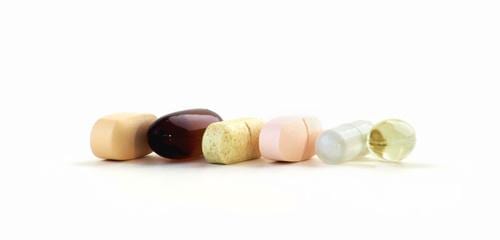If you have been surfing the Internet or flipping the TV channels recently, you might be developing a concern for your colon. Natural colon cleanse marketers assert that years of accumulated waste can make you sick, causing dire diseases such as cancer. They also say that there could be parasites in your bowels. Medical experts explain what you need to know about colon cleansing, as well as why the best natural colon cleanser is a plan you can implement at home.
Theory of Autointoxication
Colon cleansing is vital for good health–or is it? Dr. Stephen Barrett, co-founder of the National Council Against Health Fraud, explains that the human preoccupation with pristine bowels is nothing new, dating back to the ancient Egyptians, who made ample use of natural laxatives and enemas. In the 1870s, doctor John Harvey Kellogg popularized the theory of autointoxication–the belief that fecal matter fermented inside the colon, causing poisonous toxins to form and escape into the rest of the body. According to Barrett, marketers of natural colon cleanse products claim that constipation causes fecal matter to accumulate in the bowels for months, even years. Although the theory of autointoxication was disproven by the early 1920s, it still remains popular, as evidenced by the surplus of colon cleansing products–herbal laxatives–marketed to you, the unwitting consumer.
The Best Plan
What you should know about your bowels is that just because you don’t have a movement every day does not mean that constipation is a problem, says MayoClinic.com. Constipation is defined by fewer than three bowel movements a week, hard stools, a sensation of rectal blockage and the need to strain while defecating or manually unplug your bowels using your fingers. The best way to cleanse your colon naturally is to increase the fiber intake in your diet. Couple this with adequate fluid intake and daily exercise, and a healthy colon should function quite well on its own.
Colon-Healthy Foods
To keep your colon in good health, begin with a diet that consists of between 20 to 35 grams of fiber each day. This helps you form soft stools with just the right amount of bulk, says MayoClinic.com. Legumes–split peas, lentils, black beans, lima beans and baked beans–are excellent sources of fiber. Add whole grains, such as whole-wheat spaghetti, cooked barley, bran flakes and oat bran, to your shopping list. Fresh fruits and vegetables, like artichokes, peas, broccoli, raspberries, pears and apples, are also high in fiber, says MayoClinic.com. Cut down on foods that are fiber-poor, such as cheese, meat and all processed foods.
Other Natural Cleansers
MayoClinic.com cautions that any type of laxative, even those that purport to be natural, can be habit-forming. However, if you have problems with constipation, natural fiber supplements, such as Metamucil and Citrucel, are the safest of the lot. Make sure to take these with plenty of water.
Cautions and Concerns
Natural supplements, powders and herbal teas may seem less threatening than the “enema machine” of Dr. Kellogg. Keep in mind, however, that “natural” does not guarantee safety or effectiveness The U.S. Food and Drug Administration considers herbal supplements dietary in nature. They are not medicines and cannot make any claims to treat or cure a specific condition. Beware of any natural colon cleanse product that make outrageous claims, advises Mayo Clinic gastroenterologist Michael Picco. If you choose to use a product marketed for purposes of colon cleansing, make sure that you know the ingredients it contains. Some “all natural” herbal products may threaten your health, Picco cautions. Talk to your doctor before you use these, especially if you take medication or have an existing health concern.
Photo Credit
- Vitamins and Supplements image by Scott Griessel from Fotolia.com





